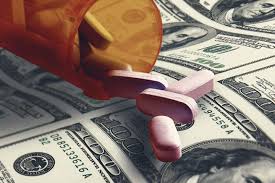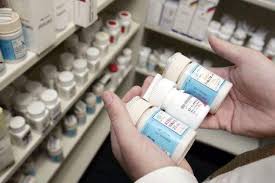Pharmaceutical and Medical Device Company Payments to Healthcare Professionals (Part II of III)

Given the significant risks posed by transfers of money and other items of value to physicians, pharmaceutical and medical device companies have to implement appropriate controls governing such payments.
The federal Anti-Kickback Statute (“AKS”) prohibits the offering, paying, soliciting or receiving anything of value to induce or reward referrals or generate federal health care program business. The statute defines “anything of value” broadly; criminal penalties or administrative sanctions may result where the exchange involves any type of remuneration, including money, goods, and services, whether made directly or indirectly, and whether made in cash or in kind.
The AKS has been interpreted to cover any arrangement where one purpose of the remuneration was to obtain money for the referral of services or to induce further referrals.
Additionally, the Patient Protection and Affordable Care Act of 2010 expanded the False Claims Act to make those who violate the AKS per se False Claims Act violators. However, courts have narrowed this provision, holding that a “kickback does not morph into a false claim unless a particular patient is exposed to an illegal recommendation or referral and a provider submits a claim for reimbursement pertaining to that patient.” Accordingly, one who violates the AKS may also be subject to all of the penalties provided by the False Claims Act.

Arrangements that do not fall within an exception or safe harbor are not necessarily illegal but will be subject to government scrutiny by the HHS Office of Inspector General (“OIG”). The government review focuses on whether the actor’s intent is to induce the recipient to increase federal healthcare business for the manufacturer.
Pharma and medical device companies face significant risks when marketing to purchasers and their agents, including pharmacies, and health plans; sales agents and physicians.
Payments to providers who are in a position to order drugs and devices present potential for abuse, and suspect manufacturer practices, such as providing lavish trips for physicians and their spouses, have been well publicized.
Companies have to subject any potential financial interaction with a physician to an independent review. These include speaking agreements, consulting arrangements, research assistance and educational grants.
Drug and device companies commonly retain physicians to serve as consultants by attending meetings, sitting on advisory boards, or otherwise assisting in education, communication and guidance related to drugs and devices. Such arrangements are important because physicians are well-qualified to perform these services.
The danger is that these interactions and agreements can be used to disguise payments intended to induce the physician to use the company’s drugs and/or devices or to influence other physicians or medical institutions to do so.
The challenge for compliance officers is to subject these interactions to close scrutiny and due diligence, document the actual services provided, and ensure that appropriate certifications and other protections are followed. In the absence of such compliance controls, the government will conclude that the company’s payments are nothing more than kickbacks designed to induce the physician to use the product.

A critical part of the company’s compliance controls is to ensure that physicians are providing bona fide consulting services and are being paid fair market value pursuant to a written agreement for these services.
Another risky area involves educational grants. Drug and device companies have a long history in funding physician’s attendance and participation at medical conference and sponsoring such conferences. Over the years, drug and device companies have pushed back and restricted payments to physicians while maintaining sponsorships and indirect support for medical education purposes. A careful balance has to be struck between educational programs and content that is aimed at promoting a company’s product. As a result, companies have to review such programs and ensure that the activities and materials are bona fide educational activities before offering any money or potential items of value.
Drug and device companies often provide physicians and medical officials and staff with meals, hospitality and even entertainment. Most companies restrict such expenditures but it is surprising how much activity continues to occur. The risks of inappropriate payments to physicians and medical staff are compounded when the physician or medical staff is in the position to purchase or influence purchase decisions. Companies have to adopt strict guidelines and seek to require pre-approval of such expenditures as often as practicable. It is easy to imagine how such practices and payments can be abused, even regular modest meal and hospitality interactions.















